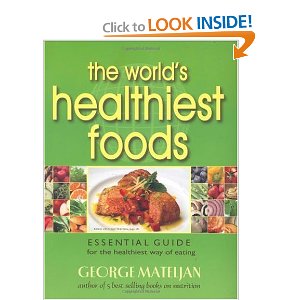Strengthlab on Nov 15th 2010 StrengthLab Thoughts
Whole foods are typically grown – not made! They’re unprocessed and unrefined (or at least contain very little of either) before being consumed. Whole foods typically don’t contain added ingredients such as sugar, salt, fat, various chemicals or artificial ingredients. They’re grown the way nature intended them (or at least as close as possible) before being molded by human ingenuity.
For example, sunflower seeds being placed inside a press to be squeezed of their oil is an example of processing (albeit minimal processing). On the other hand, the sunflower seed in it’s entirety, before being pressed of its oil, is an example of a whole food. Furthermore, a naturally grown chicken or turkey and the flesh they produce, is considered whole food until adulterated or combined with extraneous ingredients such as the ones mentioned above.
Strengthlab on Nov 15th 2010 StrengthLab Thoughts
Regardless of the oil variety and long before it’s particular smoke point, heated oil is damaged unhealthily during the process of cooking. This carcinogenic (cancer promoting) heat damage is not safe for consumption and because it’s done frequently and with many foods, day after day and year after year, your exposure to its ill-effects are numerous. The healthier alternatives when cooking with heat, are boiling water or steam, as well as animal or vegetable broths (made from scratch or purchased) and poaching.
Healthy cooking includes steaming, sautéing in broths and poaching over lower heat temperatures and for shorter periods of time. If you insist on cooking with oil, olive and canola oils of any variety are not recommended, rather use organic high-oleic sunflower or safflower oils; they withstand high cooking temperatures best. Moreover, use organic extra virgin olive oil after the cooking is done to spruce up the dish!
Strengthlab on Nov 15th 2010 StrengthLab Thoughts
Amazon Description:
George Mateljan’s new book takes healthy eating to a whole new level. It presents a unique nutrient-rich approach to the “Healthiest Way of Eating” with 500 Mediterranean-style recipes, most of which take 7 minutes or less to prepare. This book answers the question about what to eat to keep healthy. It focuses on the World’s Healthiest Foods, 100 delicious foods that are nutrient-rich, providing the maximum number of nutrients for the least amount of calories. The book is an inspiration not only for those who want to achieve vibrant health and energy but for those who also want a healthier way to lose weight by making the World’s Healthiest Foods the foundation of their “Healthiest Way of Eating.” The World’s Healthiest Foods are among the most flavorful foods in the world – so you can now eat healthier without sacrificing taste! George also explains why it is not any more expensive to eat healthy. The book complements the material on the whfoods.org website with innovative new ways to maximize the nutritional value of the World’s Healthiest Foods and minimize preparation time using quick and easy recipes that anyone can make.
http://www.amazon.com/Worlds-Healthiest-Foods-Essential-Eating/dp/0976918544/ref=sr_1_1?ie=UTF8&s=books&qid=1289856375&sr=8-1

